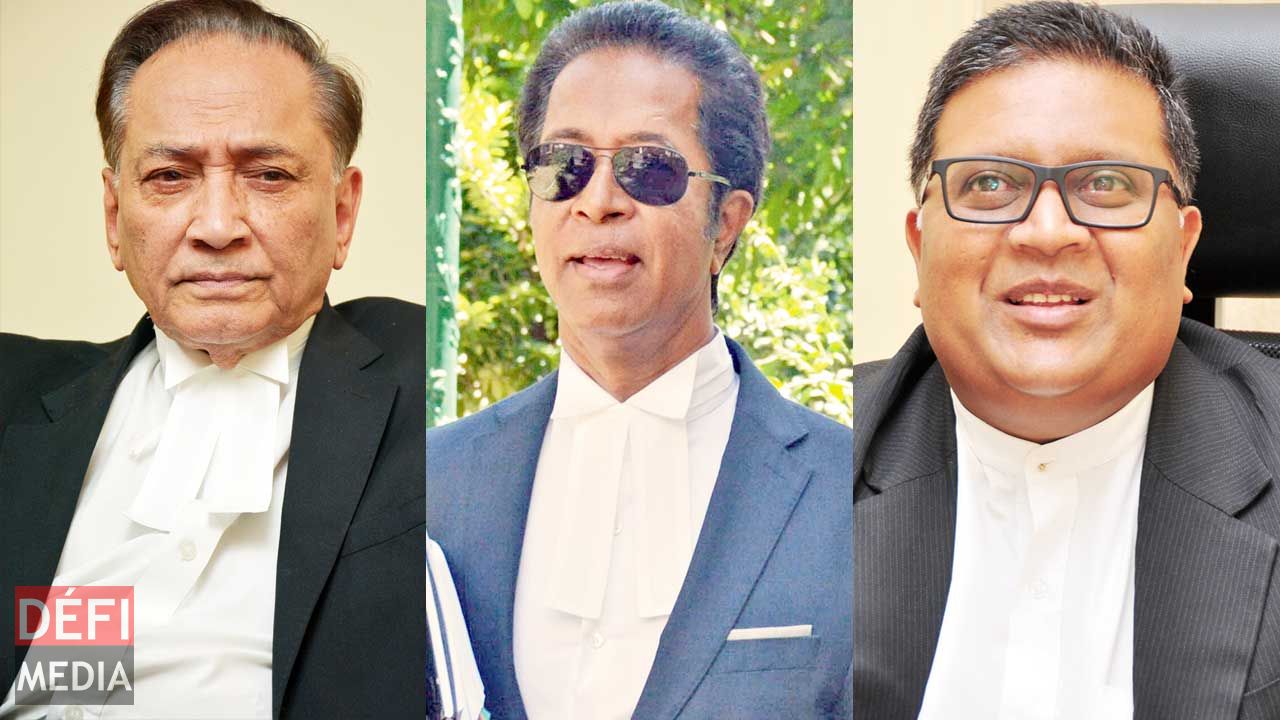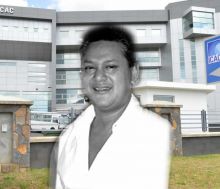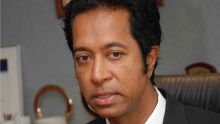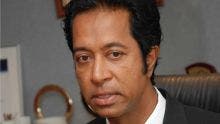
To counter the rise in drug trafficking and consumption in the island, the Commission of Enquiry chaired by former Supreme Court judge Paul Lam Shang Leen is waging war against all those whom it suspects to be involved in such matters. After civil servants and politicians, among others, the commission is now paying close attention to the relation between lawyers and their clients, drug barons and drug dealers.
Publicité
Since last year, the Commission of Enquiry on drug has been hitting headlines. Chaired by retired judge Paul Lam Shang Leen, the Commission has convened over 150 persons so far. After hearing the DCP, the head of the Anti-Drug and Smuggling Unit, the Commissioner of Prisons, the Director of Customs, the Minister of Health, representatives of non-governmental organisations (NGOs) and teachers, among many others, the Commission of Enquiry now has its focus on many lawyers.
In fact, lawyers have also been called to answer on their suspected over-closeness with their clients. Anupam Kandhai, lawyer and a member of the Movement Patriotique (MP), is the first member of the Bar to have been quizzed. Indeed, the lawyer was questioned last Thursday 15 June about his relation with his client, drug dealer Jackson Ndesamburo Kamasho. Anupam Kandhai is suspected of having paid the fine of that foreign trafficker. Paul Lam Shang Leen was interested in the release and repatriation of this foreigner and the role played by the lawyer in all this.
 Yousouf Mohamed: “Barristers should maintain professional relations only”
Yousouf Mohamed: “Barristers should maintain professional relations only”
Senior Counsel Yousouf Mohamed trusts that a barrister should only maintain professional relation with his/her client. “The barrister/lawyer should never come too close to any such client on friendly terms. There should be only the relationship of counsel and client,” says Yousouf Mohamed. He states that if a barrister for no reason visits a prisoner, then there may be excessive proximity. “A barrister has to state the purpose of his/her visit to his/her client in prison. Also, visits are not like before. Clients and barrister talk behind window screens. There is no face to face interaction. I believe that a barrister/lawyer should not do things that the profession does not allow us to do.” According to Yousouf Mohamed, it is unethical and very dangerous for barristers to have undue proximity with their clients.
 Sanjay Bhuckory: “Know where to draw the line”
Sanjay Bhuckory: “Know where to draw the line”
“As a lawyer/barrister, one should always keep a respectable distance. This will allow him/her to keep an objectivity and independency vis a vis his/her client. The moment a lawyer gets too close and familiar with the client, the chances are high that he/she will lose his/her discernment,” explains Senior Counsel Sanjay Bhuckory.
He trusts that it is vital for a lawyer to keep his/her objectivity. “This will help the lawyer to constantly evaluate or re-evaluate the merits of the case and also what the client is telling him/her and what is being said about the client. This will also help him to counsel the client on matters while handling the case.” Sanjay Bhuckory also believes that if there is undue proximity; the lawyer will not be able to maintain critical thinking. “That is why, ethically, the lawyer must not keep any kind of intimate or too friendly relation with his/her client. The Senior Counsel, who regularly delivers lectures, says that he advises all lawyers, those new to the job as well as the seniors, to never handle the case of a family member. “Whatever the issue may be, this is a basic and important rule to observe.”
Sanjay Bhuckory also highlights that lawyers need to know where to draw the line. “If the client is asking for other favours that are outside your set of duties or he/she is asking for advice or help to commit an offence, then it is the duty of the lawyer to put a stop at it at the very beginning. As lawyer you are his counsellor but not his accomplice. A lawyer should not transgress the limit. But if a lawyer is acting within the frames of his/her function and that of the case, then the question of proximity does not even arise,” he explains.
 Neil Pillay: “Is there an attempt to intimidate lawyers?”
Neil Pillay: “Is there an attempt to intimidate lawyers?”
According to the barrister Neil Pillay, the very meaning of proximity must be first defined, but further should the threshold be one of proximity or rather more appropriately undue proximity. “How do we define proximity between a lawyer and his client? Does closeness mean when client gives instructions to his lawyer in relation to the case? Does proximity mean when the lawyer and the client share a friendly relationship? Does proximity mean when the lawyer frequently visits the client at his/her home, meaning outside the court and office? Does proximity mean when the client is paying the lawyer for his services? Does it mean when the lawyer frequently visits his client in prison? Does it mean when a lawyer visits a client whose case is over? Does it mean a person cannot ask for legal advice to a lawyer when he has already been convicted?” he says.
Neil Pillay emphasises that when a lawyer goes beyond the scope of his duties, then there may be suspicion of proximity with the client. “Let’s take an extreme example; if tomorrow, a drug baron sends all his dealers to his lawyer for defence, then will there be suspicion of undue proximity with the client? Moreover, let’s say the dealer makes an allegation against the drug baron but the lawyer intervenes and influences the dealer by telling him not to include the drug baron in the case, then there may be undue proximity in the case which has led to an illegal act being done by the lawyer. So there are questions that arise. Why has the lawyer done so? The inference may be that there is proximity - undue proximity - which goes beyond the lawyer’s calling.” Neil Pillay states that lawyers are somewhat vulnerable when it comes to the relation they share with their clients, which is why most lawyers have to keep a certain objectivity and reserve when dealing with their clients.
He also underlines that as a lawyer, it is unethical to refuse to take any case and client. “This is called the cab-rank rule which is however subject to certain exceptions, for example when there is a conflict of interest.” Neil Pillay questions if the Commission of Enquiry is targeting certain lawyers on loose grounds. “Is there an attempt to intimidate lawyers? Are people accused of drug offences not entitled to a lawyer to defend them? Is it fair for public declarations about lawyers to be made when this Commission is entrusted with the most important task of investigating into the drug business in Mauritius? We must aim higher and the ways and means and words used must not put in peril the rights and guarantees which exist under our Constitution for the protection of every citizen of this country,” he argues.

Notre service WhatsApp. Vous êtes témoins d`un événement d`actualité ou d`une scène insolite? Envoyez-nous vos photos ou vidéos sur le 5 259 82 00 !























![[Info Soirée] : « bizin pa negliz bann slow learners »](https://defimedia.info/sites/default/files/styles/square_thumbnail/public/thumbnail_190425.jpg?itok=J--MzK_k)
